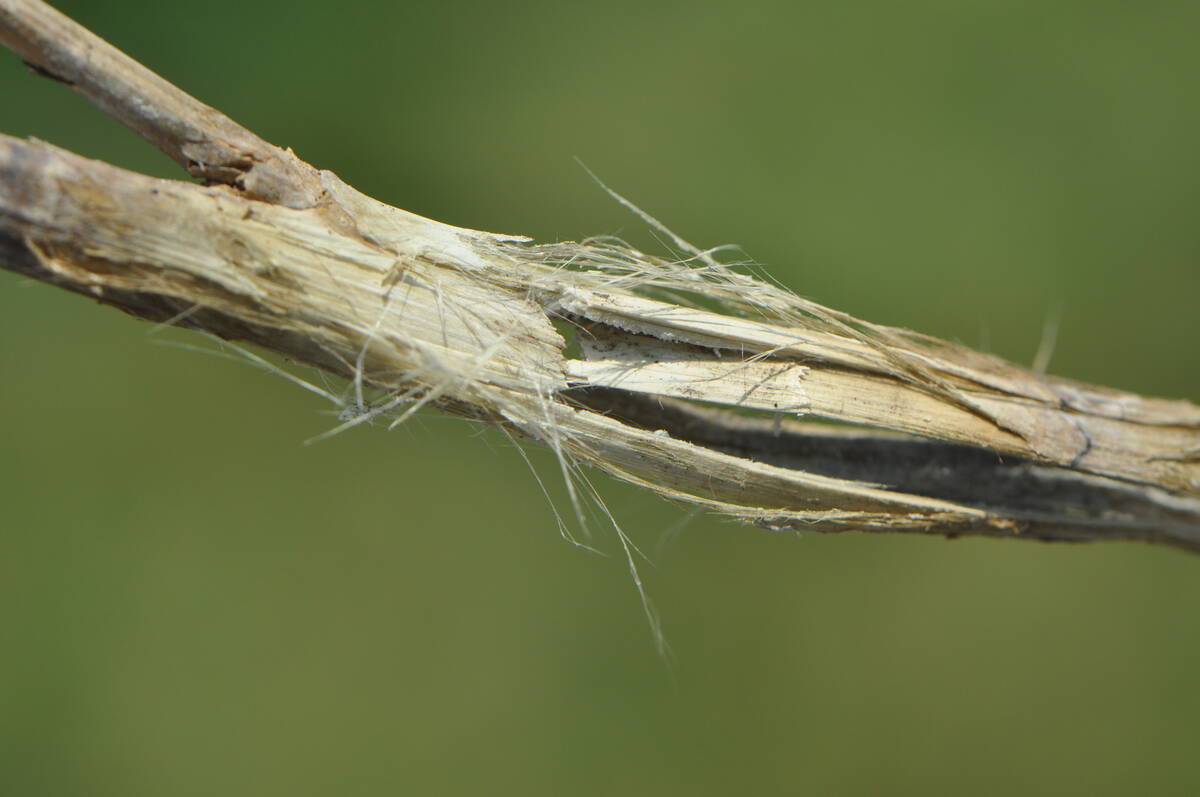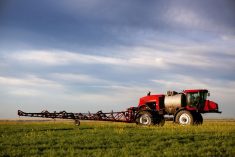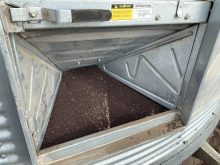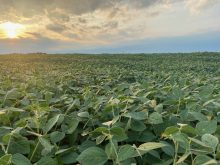Farmers who breach patent law should expect to pay a price, but an Ontario lawyer says the price some farmers have been paying goes beyond what the law stipulates.
I would say the public and farmers out there are being somewhat deliberately misinformed about what is a fair settlement, said Kurtis Andrews, a lawyer with Donald R. Good Professional Corporation.
The message I m trying to get out there is don t infringe, but if you have infringed you should only have to pay what you deserve to pay… and it shouldn t be more than that, he said in a recent interview.
Read Also

Manitoba sclerotinia picture mixed for 2025
Variations in weather and crop development in this year’s Manitoba canola fields make blanket sclerotinia outlooks hard to pin down
Andrews represented four Ontario farmers who infringed on Monsanto s Roundup Ready patent.
The farmers Charles Rivett, Alan Kerkhof, Lawrence Janssens and Ronald Janssens admitted to saving Monsanto s Roundup Ready soybeans contrary to Monsanto s Technical Stewardship Agreement, growing some of the saved seed and spraying the crops with Roundup.
Both parties appealed the lower court ruling.
Monsanto was seeking a penalty to equal the farmers net earnings from those crops $130 and $150 an acre for Rivett and the Janssens, respectively.
Last year, the Federal Court of Appeal ruled the farmers should pay only 18 per cent of their net profits from those illegally grown soybeans, which amounted to $24 and $28.14 an acre.
While Monsanto wanted to punish the infringing farmers and deter others, under Canadian law, patent holders are entitled to either recover the
money they lost or recoup the profits earned by the infringer.
Punitive measures are not available except in the rarest cases, Andrews said.
This is not criminal activity. This is business activity, albeit improper, and those types of infractions are to be remedied with money and that s it.
In essence, the court said Monsanto can t take credit for inventing soybeans, but can for the enhancements made to its soybeans, Andrews said.
The case would have been settled out of court if Monsanto hadn t demanded such high penalties, Andrews said.
A fair settlement should aim to equal what the court is going to order. Then everybody wins and the court system as well… because it s expensive… he said.
Monsanto prefers to settle out of court too, company spokeswoman Trish Jordan said.
We always feel it s better for the growers if you don t have to go through a long, drawn-out
litigation because it takes our time and resources and obviously it takes theirs as well, she said. But they are entitled to that option if that s an option they choose.
Andrews said this case sets a precedent for future penalties for patent infringement. Jordan says every case is different.
We expect there to be a deterrent because what these guys are doing is stealing… otherwise it s catch me if you can and that s not fair, she said.
Monsanto also owes a duty to its paying customers who do play by the rules to take action against those who don t, she said. They are the ones… who expect us to have a level playing field.
In this case the farmers penalties were reduced, but Jordan noted the farmers still paid a penalty in legal costs and lost time. She also said the courts have in some cases levied higher penalties.
If Monsanto is seen to be punishing farmers by forcing them to go to court, that could backfire, Andrews said. By declining a reasonable offer to settle out of court, the court can force the company to pay the accused double their legal fees, he said.
As for some farmers paying higher penalties, Andrews said it s because the farmers weren t well enough informed.
However, Monsanto continues to wield a significant deterrent because it can refuse to sell its products to those who breach their contracts. Farmers won t like it, but that is an option to which Monsanto is legally entitled, Andrews said.
We want farmers to understand that it s not just the loss of access to the violated crops in this case soybeans it means you don t have access to our technology in corn, you don t have access to our technology in canola, Jordan said.
There are other crop options, but probably not as profitable, she added.
That s something they have to consider. [email protected]
———
ThemessageI mtryingtogetoutthereis don tinfringe,butifyouhaveinfringedyou shouldonlyhavetopaywhatyoudeserveto pay…anditshouldn tbemorethanthat.
kurtis andrews



















